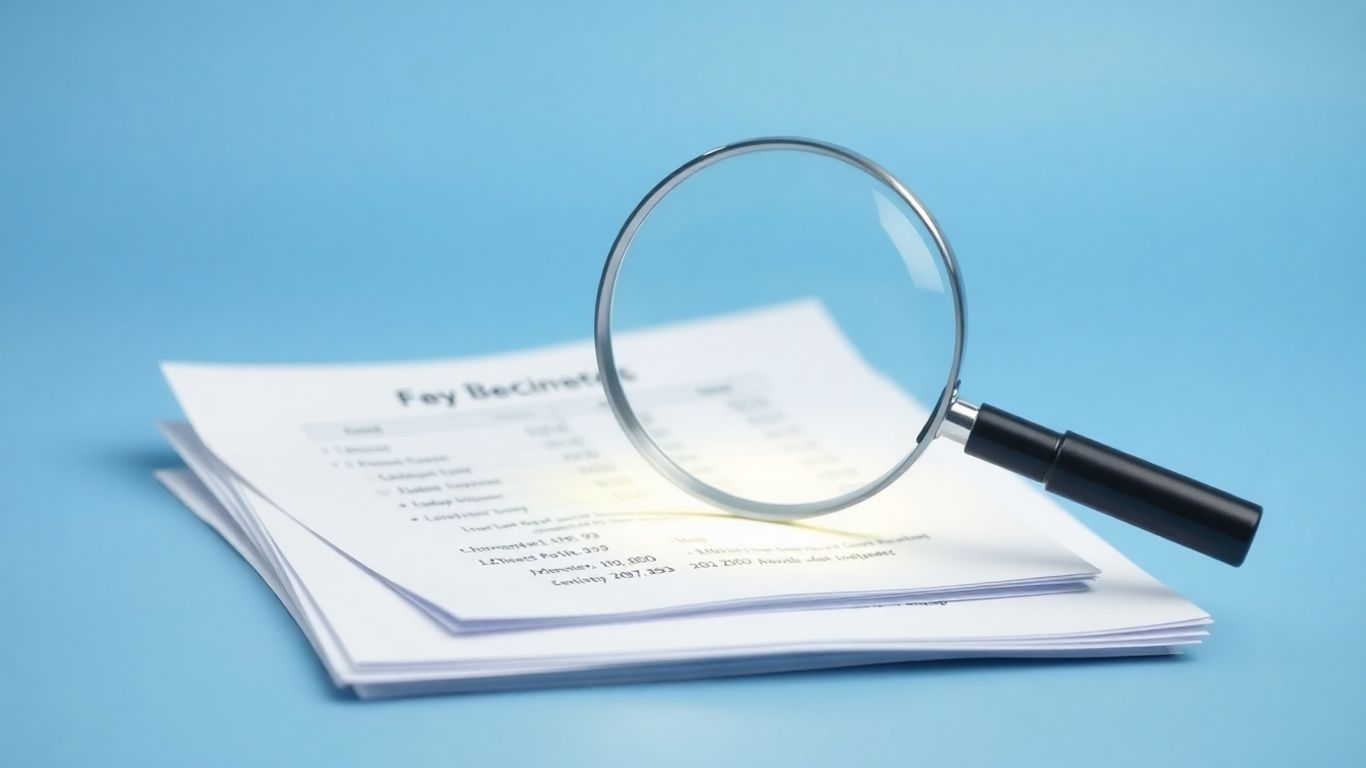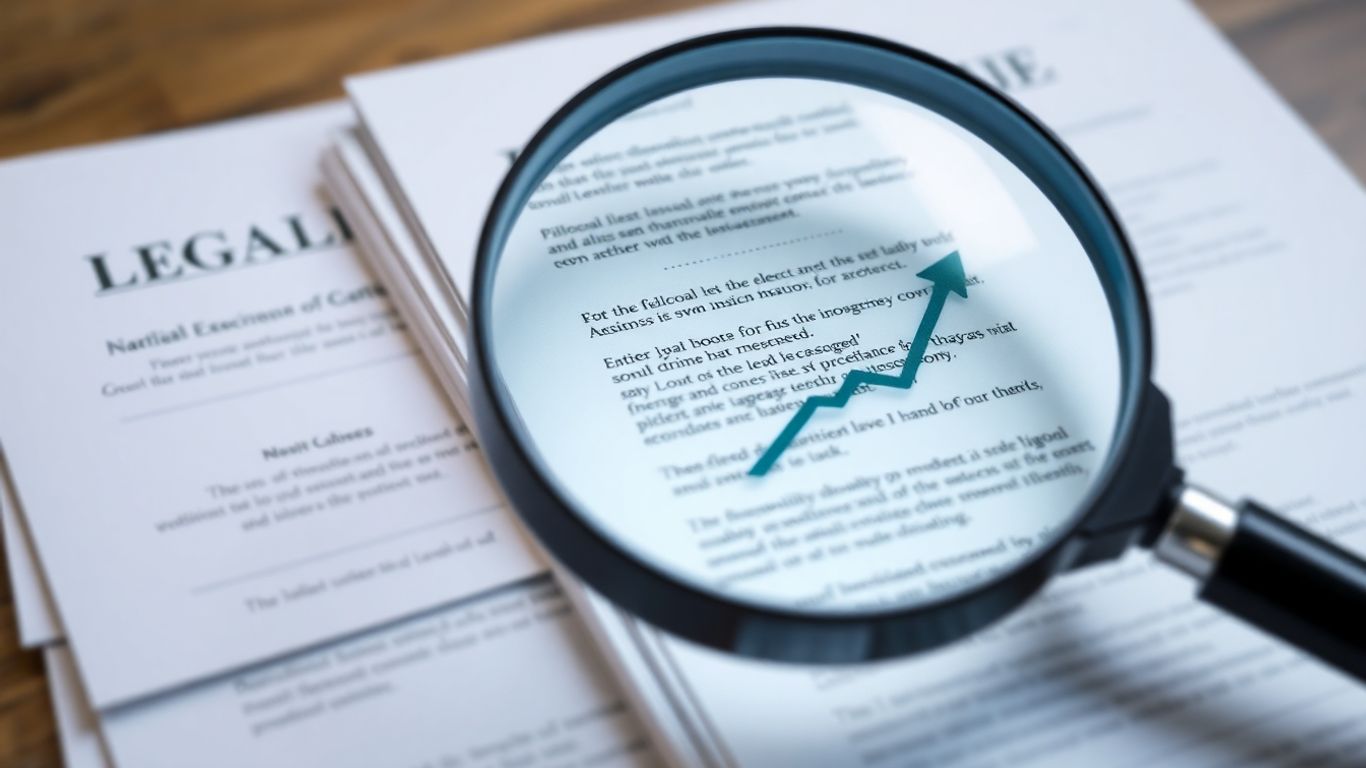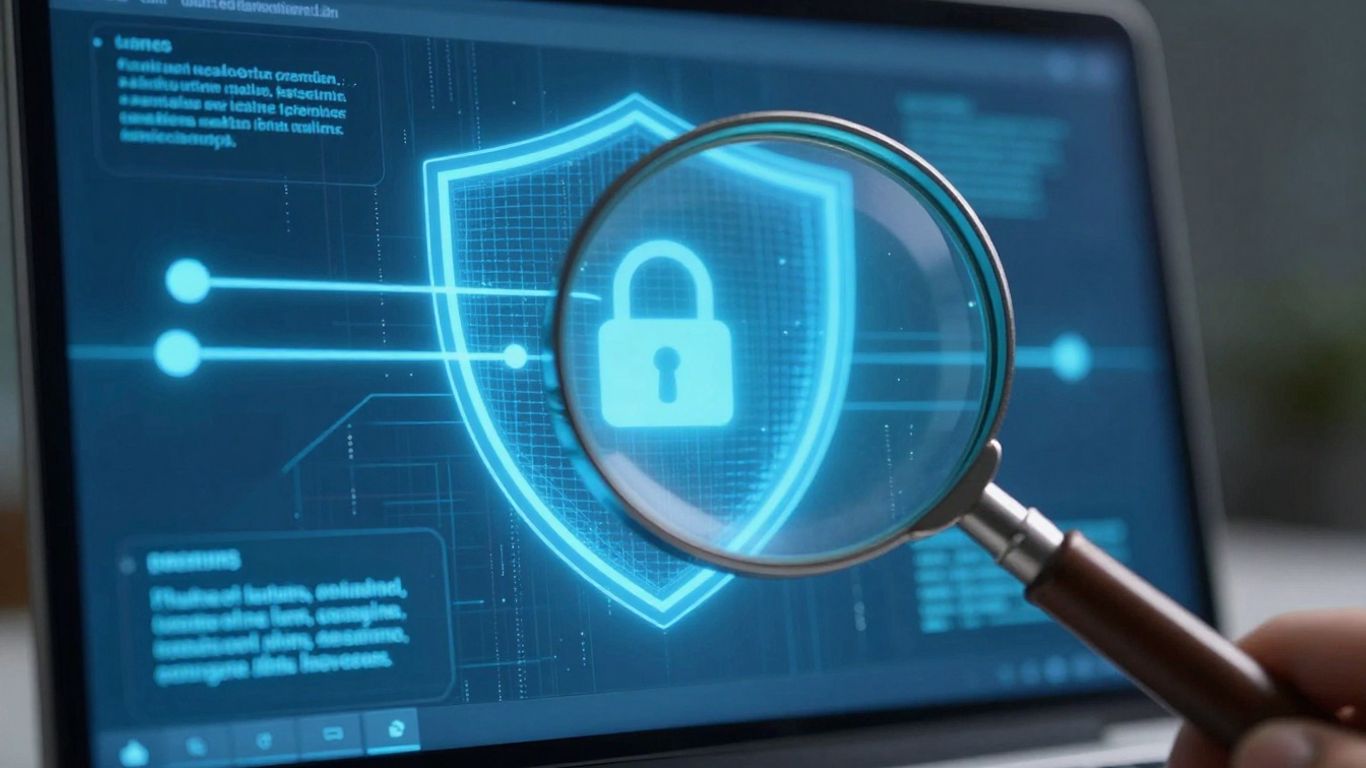[ newsletter ]
Stay ahead of Web3 threats—subscribe to our newsletter for the latest in blockchain security insights and updates.
Thank you! Your submission has been received!
Oops! Something went wrong. Please try again.
Master contract audits for compliance and cost savings. Learn essential steps, tools, and best practices for effective contract review and value preservation.





Keeping track of all your business contracts can feel like a juggling act, right? You sign them, you think everything's set, but then what? Turns out, making sure everyone's actually sticking to the plan is a whole other ballgame. That's where a contract audit comes in. It's not just about checking boxes; it's about making sure your agreements are actually working for you and not costing you money or causing headaches down the line. This guide breaks down how to do it right, so you can stay compliant and keep more cash in your pocket.
So, why bother with contract audits? It’s easy to think that once a contract is signed, the work is done. But that’s really not the case. Think of it like buying a car; you don't just drive it off the lot and forget about it. You need to maintain it, check the oil, make sure the tires are good. A contract is similar. It’s a living document that needs attention to make sure it’s still working for you.
The real value of a contract often starts to slip away the moment it’s signed if it’s not actively managed. We're talking about a significant chunk of value, too – studies show it can be over 8.6% on average. And if you’re doing things manually, like checking invoices, it’s super common to miss errors. Some reports suggest businesses miss overpayments in more than 70% of manual audits. That’s money just walking out the door.
Before you even start looking at paperwork, you need to figure out what you’re actually auditing. This is about setting boundaries. Are you checking if a vendor delivered what they promised? Or are you looking at whether the billing matches the agreement? Maybe it’s about making sure you’re both following all the relevant laws. You can’t audit everything at once, so you need to pick your battles.
Here’s a breakdown of what you might look at:
Setting a clear scope prevents the audit from becoming a never-ending task. It keeps the focus sharp and makes the process much more manageable.
For legal and compliance folks, audits are a big deal. The rules and regulations are always changing, and a mistake can lead to some serious trouble. It’s not just about avoiding fines; it’s about protecting the company’s reputation and making sure operations run smoothly. A well-done audit helps legal and compliance teams sleep better at night.
Their main goals usually include:
Think of systematic oversight as keeping a close eye on things over time, not just during a big audit. It’s about having processes in place that continuously check if contracts are performing as expected and if value is being maintained. This proactive approach helps prevent value erosion before it becomes a significant problem. It’s about making sure that the agreements you have in place continue to support your business goals effectively. This kind of ongoing attention is key to maximizing contract value and avoiding costly surprises down the line.
So, you've decided to really dig into your contracts. That's smart. It's not just about finding mistakes; it's about making sure you're getting what you paid for and that everything is above board. This part is all about how to actually do the audit in a way that makes sense and doesn't leave you more confused than when you started.
Before you even look at a single document, you need to know why you're doing this audit and what you're looking at. Trying to audit everything at once is like trying to eat an elephant – you gotta take it one bite at a time. So, what are you hoping to find? Maybe you want to see if you're overpaying for services, or if a particular vendor is actually delivering what they promised. Or perhaps it's about making sure you're not accidentally breaking any rules.
Think about these common goals:
Once you know your goals, you need to decide the scope. Are you auditing every single contract you have? Probably not realistic. Maybe focus on the ones with the biggest dollar amounts, the most complex terms, or those where you've had issues before. Prioritizing is key here. You can find more about setting these goals in this guide to contract audits.
This is where the real work happens. You've got your objectives and scope set, and now it's time to get your hands dirty with the paperwork. You'll need to gather everything related to the contracts you're examining. This isn't just the signed agreement itself; think about invoices, payment records, emails, performance reports, and any other communication that sheds light on how the contract has been playing out.
When you're looking at the contracts, pay close attention to the nitty-gritty details:
It's easy to get lost in the details, but remember the main goals you set. Keep asking yourself if what you're finding relates back to those objectives. This focused approach prevents you from going down rabbit holes that don't serve your purpose.
Okay, you've done the hard work of examining everything. Now, you need to make sense of it all and tell people what you found. This is where documentation and reporting come in. You need to create a clear record of your findings, any issues you uncovered, and what you think should be done about it.
Your report should be easy to understand, even for people who weren't involved in the audit. Think about including:
It's also a good idea to have a table that lays out specific discrepancies, like this:
Once the report is done, share it with the relevant people in your organization. This isn't just about handing over a document; it's about starting a conversation about how to move forward and make things right.

When you're looking at contracts, it's easy to get lost in the details. That's where the right tools and methods come in handy. Think of it like having a good toolkit for fixing something – you wouldn't try to hammer a nail with a screwdriver, right? The same goes for auditing. Using the proper techniques makes the whole process smoother and helps you find what you're looking for without pulling your hair out.
There's a whole range of software and systems out there that can really help. Contract management software, for instance, is a big one. It keeps all your documents in one place, which is a lifesaver. No more digging through filing cabinets or endless email chains. These systems often have features that can automate reminders for important dates or track contract milestones. Plus, they usually have pretty good search functions, so you can find specific clauses or terms quickly. Beyond that, data analytics tools are becoming more common. They help you make sense of all the numbers and figures related to a contract, spotting trends or oddities you might otherwise miss. And don't forget about legal research platforms; they're great for making sure everything you're doing lines up with current laws and industry rules.
One of the most straightforward ways to audit is to go through the contract word by word, or clause by clause. You're basically checking each part to make sure it's clear and that everyone's on the same page. This means looking closely at things like what work is supposed to be done, how performance will be measured, how much things cost, and what happens if someone wants to end the contract. After that, you look at the data. This could be anything from project reports to financial statements. The goal here is to see if what the contract says is actually happening in practice. Are payments correct? Are deadlines being met? Are there any unexpected costs popping up?
Here's a quick look at some common data analysis methods:
Artificial intelligence is starting to make a real difference in contract auditing. AI tools can sift through huge amounts of contract data much faster than a person ever could. They can spot patterns, inconsistencies, or potential risks that might be hidden in plain sight. Think of it like having a super-powered assistant who can read thousands of pages in minutes and flag anything that looks unusual. This doesn't replace the human auditor, of course. Instead, it frees them up to focus on the more complex issues and make better decisions based on the AI's findings. AI can help identify clauses that are commonly problematic or highlight deviations from standard terms across many contracts.
When you're auditing contracts, it's easy to get bogged down in the sheer volume of information. Using a combination of smart software, systematic review methods, and analytical techniques can make the process much more manageable and effective. It's about working smarter, not just harder, to make sure your contracts are doing what they're supposed to do.
So, you've gone through the whole contract audit process, and now you've got a list of findings. What do you do with it? It's not just about spotting problems; it's about fixing them and making sure they don't pop up again. Think of it like finding a leaky faucet – you don't just stare at it, right? You figure out why it's dripping and then you fix it.
This is where you look at what the audit report actually says. Did the vendor miss a deadline? Are they charging you more than the contract allows? Maybe they're not meeting the quality standards you agreed on. It's about comparing what's happening in the real world with what's written down on paper. You need to be sharp here, spotting things like:
The goal here is to get back to the basics of the agreement. If something isn't being done as agreed, it needs to be flagged and corrected. This isn't about blame; it's about getting the contract to work the way it was intended.
This is the part where you might actually get money back or stop losing it. If you found that you were overcharged, or that the vendor didn't perform in a way that cost you business, you need to address it. It might involve a simple invoice correction, or it could mean a more involved discussion about damages. Here's a quick look at how to approach it:
It's important to act promptly once you identify financial discrepancies. The longer you wait, the harder it can be to recover what's owed.
This might sound a bit backward – how can finding problems improve a relationship? Well, think about it. When you do a contract audit, you're not just looking for mistakes. You're also looking for ways to make the partnership work better for both sides. By addressing issues openly and working together to fix them, you build trust. It shows the vendor that you're serious about the partnership and want it to succeed. It also gives them a chance to improve their own processes. A well-handled audit can lead to clearer communication, better performance, and a stronger, more reliable supplier relationship in the long run. It's about turning potential conflict into a chance for growth.

Thinking about contract audits can feel like a chore, but honestly, being proactive is way better than dealing with a mess later. It’s like doing a little bit of maintenance on your car – a small check now can save you from a breakdown on the highway. For businesses, this means setting up a system that keeps an eye on contracts before problems pop up. It’s about being smart with your agreements so they actually help your business grow, not hold it back.
Before you even think about looking at a contract, you need a plan. What are you trying to find? Are you looking for ways to save money, make sure everyone’s following the rules, or just check if the other side is doing what they promised? Figuring this out first makes the whole audit process much more focused. You don't want to waste time digging through things that don't matter to your main goals.
Getting the team and the goals sorted out upfront is half the battle. It sets the stage for a productive review and stops things from getting sidetracked.
Auditing shouldn't be a one-off event. Think of it as a regular check-up. How often you do it depends on your business and the types of contracts you have. Some might need a look every year, others maybe every few years. The key is consistency. After each audit, take a moment to think about what you learned. Did you find a recurring issue? Maybe your contract templates need an update, or your team needs more training on a specific clause. This feedback loop is what makes your contract management get better over time.
Here’s a quick look at how often different types of contracts might need a review:
Sometimes, you just don't have the in-house know-how or the bandwidth to do a deep dive into every contract. That’s perfectly okay. Bringing in outside experts can be a smart move. They’ve seen it all and can spot things you might miss. Plus, they can help you set up better processes for the future. Whatever you do, make sure everything is documented. Keep records of your audit findings, what you did about them, and any changes you made. This creates a history that’s super helpful for future audits and for training new people. Good documentation is your best friend when it comes to staying organized and proving you’re on top of things.
So, you've gone through the whole audit process, found some things, and hopefully fixed them. Great! But that's not the end of the story. Keeping contracts on track after the audit is where the real work happens, and honestly, it's way more important than just the audit itself. It’s about making sure everyone sticks to the plan, day in and day out.
Look, if the contract itself is a mess, or if nobody really knows what it says, you're already behind. Having everything written down clearly, with no room for guessing, is step one. This means not just the main agreement, but any changes, addendums, or side notes. And then, you've got to talk to people. Regularly. Not just when there's a problem, but to check in, clarify things, and make sure everyone's on the same page about what's expected. It sounds simple, but you'd be surprised how many issues pop up just because someone misunderstood a clause or didn't get an important update.
If a contract is vague, it's practically an invitation for problems. Clarity upfront saves a lot of headaches later on.
This is where you actually watch what's happening. Are the deliverables being met on time? Is the quality up to par? Are payments being made as agreed? You need a system to track this stuff. It could be a simple spreadsheet for smaller contracts, or more sophisticated software for bigger ones. The key is to have metrics – things you can actually measure – and to look at them often. Don't wait for a big problem to surface; catch the small signs early.
Here’s a quick look at what to monitor:
People need to know what their job is when it comes to a contract. If you've got a team involved, they all need to understand their part and why it matters. This means training sessions, clear guidelines, and making sure everyone knows who to go to if they have questions or see a potential issue. And let's be real, sometimes people don't do what they're supposed to. The contract should outline what happens when that occurs, and you need to be prepared to follow through. This isn't about punishment; it's about accountability and making sure the agreement holds weight. Whether it's a gentle reminder, a formal warning, or invoking a penalty clause, there needs to be a clear process for dealing with non-compliance. It shows you're serious about the contract and helps prevent future slip-ups.
So, we've gone through what contract audits are all about and why they're a big deal for businesses, big or small. It's not just about checking boxes; it's really about making sure your agreements are doing what they're supposed to do. By looking closely at your contracts, you can catch problems before they get out of hand, save some money, and even make your business relationships stronger. Think of it as regular maintenance for your important deals. Using the right tools and keeping an eye on things regularly will help your business run smoother and stay on the right track. Don't let your contracts just sit there – give them the attention they deserve.
Think of a contract audit like a check-up for your agreements. It's a careful look at contracts to make sure everyone involved is following the rules they agreed to. It helps find problems, make sure things are fair, and catch any mistakes before they become big issues.
Contracts can get complicated, and sometimes value gets lost over time, like maybe 8.6% on average! Audits help businesses find these hidden problems, like overpaying suppliers, which many companies miss. They help save money, avoid legal trouble, and make sure contracts are working as they should.
Auditors examine a few key areas. They check if the money parts are right (like billing and payments), if everyone is doing what they promised (like delivering goods or services on time), and if the contract follows all the necessary laws and rules. They also look for any potential risks.
Yes, definitely! By finding mistakes like overpayments or missed deals, audits can help businesses get back money they might have lost. It's like finding forgotten cash. Plus, making sure contracts are followed correctly stops future money leaks.
It really depends on how complex and risky your contracts are. Some businesses do them every year, others every few months. The main idea is to do them regularly enough to catch problems early and keep things running smoothly, rather than waiting for a big disaster.
Yes! There are tools, including smart computer programs (like AI), that can help a lot. These tools can quickly read through lots of contracts, find patterns, and spot issues that might be hard for a person to see. They make the audit process faster and more accurate.


